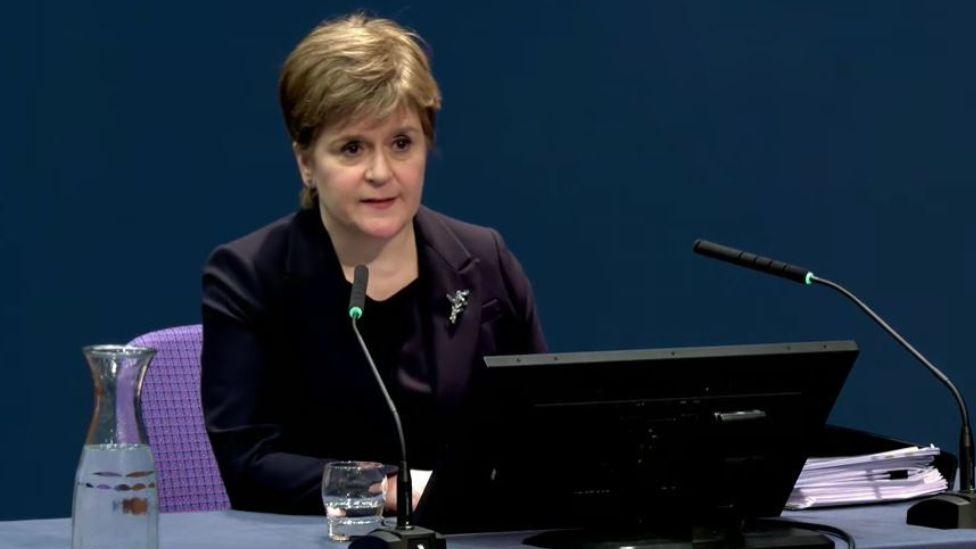Scotland not properly prepared for pandemic – Covid inquiry
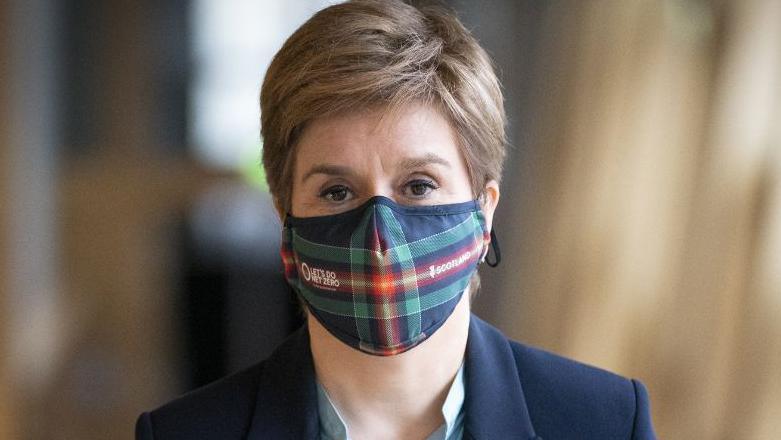
The inquiry found the Scottish government, led by Nicola Sturgeon until 2023, "failed" its citizens
- Published
The Scottish government was inadequately prepared for the Covid-19 pandemic, a public inquiry has ruled.
The UK Covid Inquiry said both UK and Scottish governments “failed their citizens” by not doing enough to properly plan for the crisis.
It found Scottish ministers in Nicola Sturgeon's administration adopted flawed UK government resilience plans without adapting them for Scotland’s needs.
Inquiry chairwoman Baroness Hallett has called for fundamental reform of public health emergency planning.
First Minister John Swinney said the Scottish government would “consider in great detail” the findings and learn lessons from them.
Prime Minister Sir Keir Starmer, who took office this month, said his Labour administration would "carefully consider" the report.
More than 235,000 people died in the UK with Covid listed as one of the causes on their death certificate - including more than 17,000 in Scotland - after the first cases were detected early in 2020.
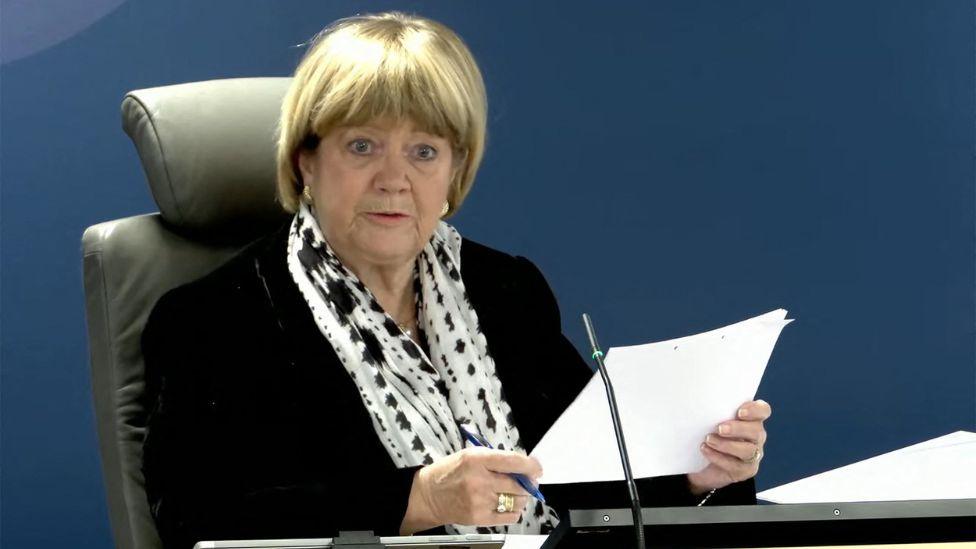
Inquiry chairwoman Baroness Hallett has made several recommendations
Baroness Hallett described the UK as “ill-prepared for dealing with a catastrophic emergency, let alone the coronavirus pandemic”.
She said: “I have no hesitation in concluding that the processes, planning and policy of the civil contingency structures across the UK failed the citizens of all four nations.
“There were serious errors on the part of the state and serious flaws in our civil emergency systems. This cannot be allowed to happen again.”
The chairwoman said institutions and structures for emergency planning were too complex and highlighted “fatal strategic flaws” in how plans were drawn up.
“Unless the lessons are learned and fundamental change is implemented, the human and financial cost and sacrifice of the Covid -19 pandemic will have been in vain,” she added added.
'Lack of adequate leadership'
The inquiry's first reported assessed whether the risk of a pandemic was properly identified and if the country was ready for it.
It found:
Ministers planned for a pandemic - but based most of their preparations on flu.
A UK-wide Influenza Pandemic Preparedness Strategy was “simply copied” by the Scottish government without adaptation to local circumstances.
The Scottish government and other devolved administrations “did not act with sufficient urgency, or at all” on the findings of a previous planning exercise.
Parts of the Scottish government responsible for emergency planning were subject to a number of reorganisations, leaving them further from the centre of government and causing confusion.
There was a seven-month period in the year before Covid where the Scottish government officials tasked with preparing for a pandemic did not meet after being diverted to deal with Brexit.
There was a "lack of adequate leadership, coordination and oversight” for pandemic planning across all UK governments.
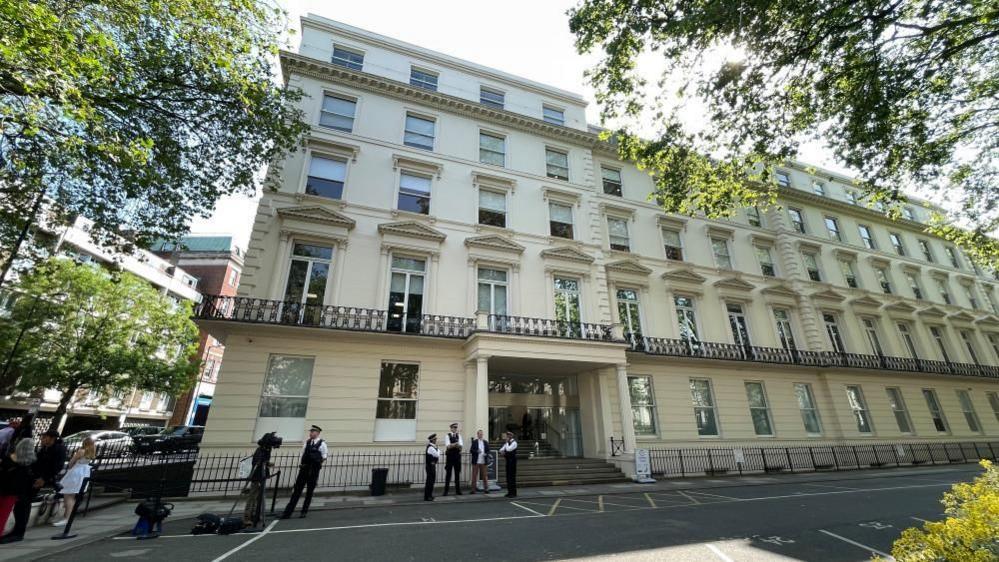
The inquiry heard evidence at Dorland House in central London
The inquiry’s findings echo those of a 2021 Audit Scotland report that found the Scottish government was not sufficiently prepared for the pandemic.
The public spending watchdog found that despite a number of pandemic planning exercises - in 2015, 2016 and 2018 - not all the actions identified in these projects were fully implemented.
These included measures to ensure access to enough personal protective equipment (PPE) and to quickly address social care capacity.
Baroness Hallett made a series of recommendations that would result in a major overhaul of emergency planning, including the creation a new independent body to oversee the changes.
This would effectively take a lot of the planning out of the government departments to ensure preparations across the UK are a “whole system response”.
Baroness Hallett also wants a UK-wide pandemic planning exercise every three years.
The inquiry is expecting the recommendations to be implemented swiftly, some of which within six months to a year.
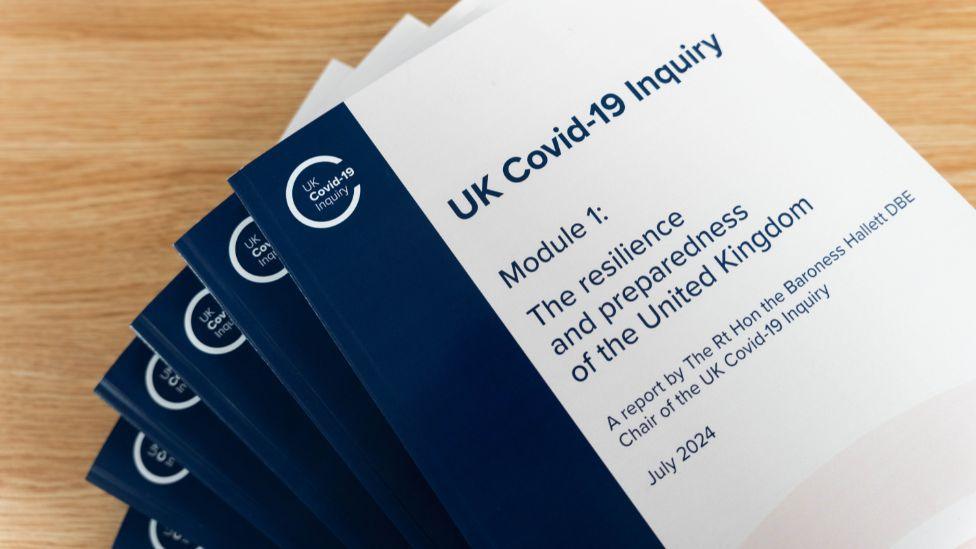
The report is the first of several to published by the inquiry, which is scheduled to stage hearings until 2026
Ms Sturgeon, who led the Scottish government between 2014 and 2023, told the inquiry in June 2023 that planning for a pandemic had been hampered by preparation for a no-deal Brexit.
Ms Sturgeon agreed that the UK Influenza Pandemic Preparedness Strategy – produced in 2011 following the swine flu outbreak two years before – was inadequate to deal with Covid-19.
She also said her government clashed with Downing Street during the pandemic over approaches to suppressing the virus.
Following the release of the report, Mr Swinney - who held several cabinet roles in the lead up to the crisis and served as deputy first minister and Covid recovery secretary during it – apologised to bereaved families “where we did not get things right”.
He told BBC Radio Scotland’s Drivetime the government worked with the “best intentions in dealing with an emerging situation in 2020 and in the succeeding years”.
'Lack of respect'
Mr Swinney told BBC Radio Scotland’s Drivetime the “quality of intergovernmental relations declined dramatically” after Brexit and that there was a “lack of respect” from the UK government to the devolved governments.
“Undoubtedly a poor level of intergovernmental relationships is not going to help in ensuring a cohesive approach towards the response to the pandemic,” Mr Swinney said.
He said he had committed to a more collaborative approach with the new Labour administration in Downing Street.
The first minister added: “I believe Scotland is better prepared for any future scenario but we must be constantly learning the lessons of the experience we had during Covid to ensure our pandemic preparedness is as effective as it can be to deal with any threat that is faced by the public.”
The report is the first of several to be published by the UK Covid Inquiry, which began in 2022 and is scheduled to continue until 2026.
A separate Scottish inquiry is looking specifically at the impact of the virus north of the border.
It has been delayed after its original chairwoman quit for personal reasons and four members of the inquiry's legal team also stood down.
Hearings began in October 2023 but they were further delayed this year, external after the replacement chairman, Lord Brailsford, required surgery on a kidney tumour.
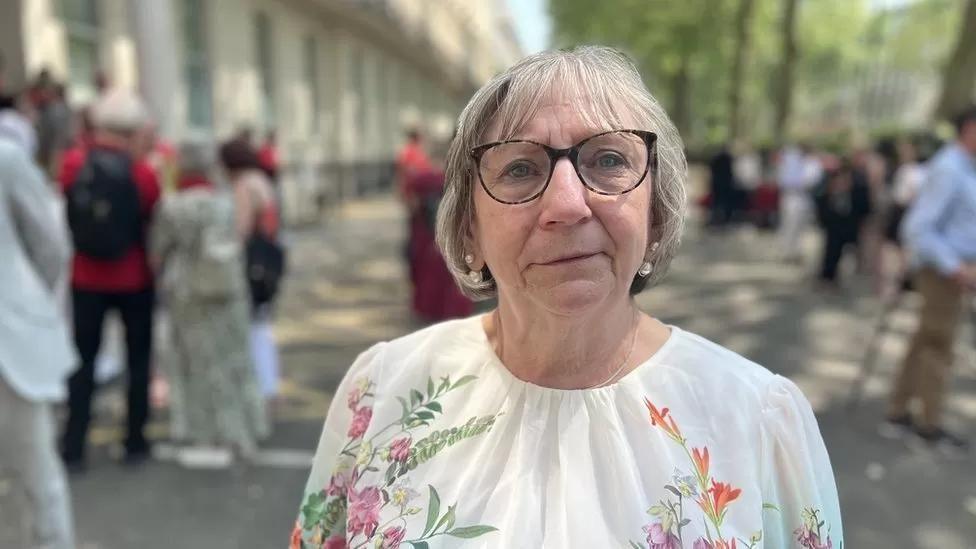
Margaret Waterton, a member of Scottish Covid Bereaved, called on ministers to take the report seriously
Margaret Waterton, a member of Scottish Covid Bereaved who lost her mother and husband to coronavirus, said the report was “full of rigour, full of detail and has left no stone unturned”.
She said health care staff who cared for her mother were under-resourced and ill-prepared for the pandemic.
The widow said she was glad the report had said the Scottish and UK governments had “failed” citizens and urged ministers to take the report “seriously”.
“I feel my mum’s death was avoidable and my husband’s death may well have been avoidable too had the governments listened to the knowledge, the information and advice they were given,” she added.
Related topics
- Published29 June 2023
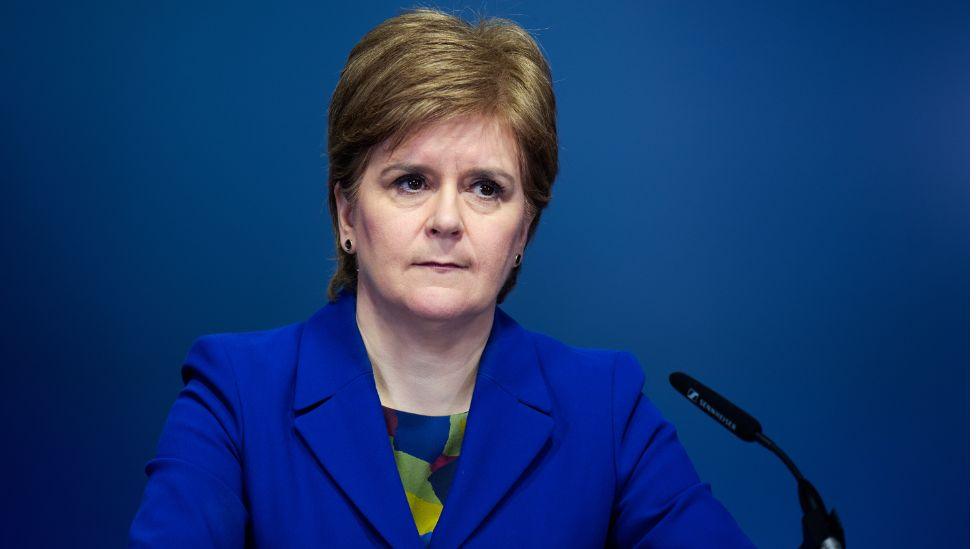
- Published7 December 2023
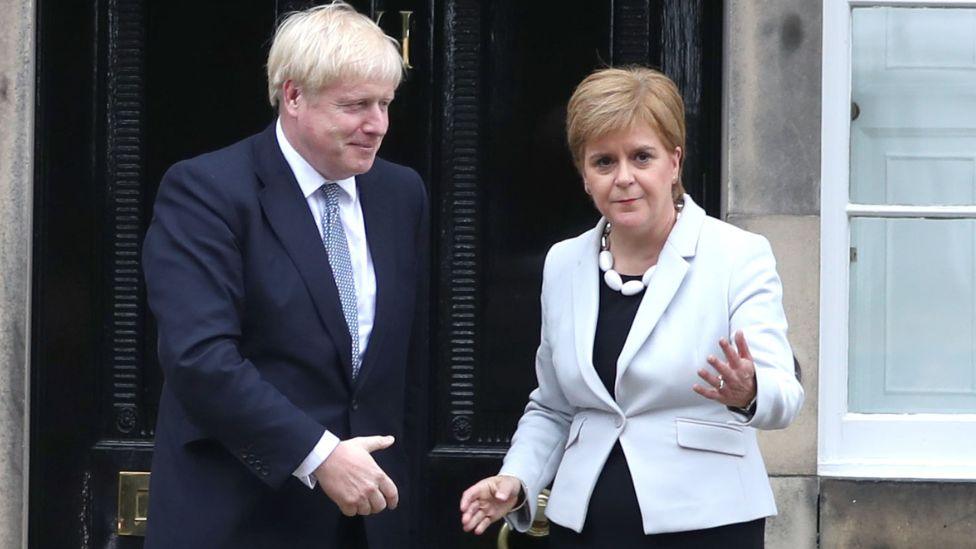
- Published31 January 2024
